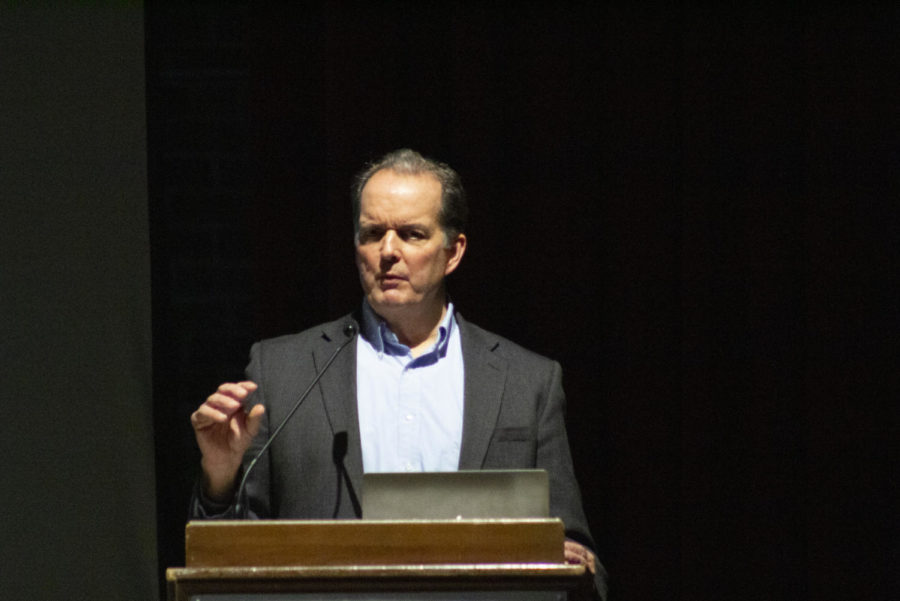Director of Catholic non-profit links relationship between agriculture and faith
February 12, 2019
Jim Ennis, executive director of the Catholic Rural Life non-profit organization, discussed the vital relationship between food and faith as well as how faith can be the drive to help others and remind them of their duty to the environment in a lecture Tuesday.
Ennis said there are a number of problems with the environment right now, including the soil, water and air pollution. Ennis also said these factors are hindering the process of food production in rural communities and prevent the consumer from accessing clean and healthy food.
Soil is the foundation of food production and is essential to the vibrancy of the farm. Without it, the plants cannot grow to their healthy potential.
Ennis said some Christian farmers do not really see the environment as a problem and that they should treat the land as God’s gift.
Ennis also said some Christian authors argue the opposite of that idea.
Some of those authors argue that Christian organizations have been focusing on the the environment, while they should be purely focusing on their religious practices, Ennis said.
“Not everyone in the faith communities agrees about this. I call it the big Great Blind Spot,” Ennis said.
Ennis said the cause of this dissonance between agriculture and faith is that many farmers are treating this land without the thought of passing it on to newer generations, so there is mistreatment toward the essentials of food production.
“What’s happening is that we have a broken relationship with God that’s affecting not only our relationship with humans, each other, but also with other creatures and with the land,” Ennis said.
Ennis quoted the book of Genesis, saying people need to “cultivate and to care for the earth.” Ennis connects this idea of conservation and said how farmers must make sure the land is sustainable for future generations.
This is the relationship between food and faith, how the land is God’s gift entrusted to the people from the very beginning and that it is their job to share God’s gift fairly to all mankind, Ennis said.
Christina Campbell, associate professor in the College of Human Sciences, said she believes we need to see the land as the gift that it is, and use it to help feed the population.
“Everybody needs to eat, which is very obvious, but we lose sight of that and that we need to be more connected with that concept,” Campbell said.







